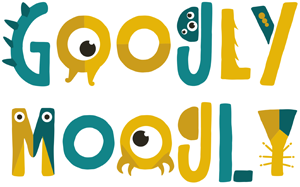Organizing and running a successful employee workshop is no small feat. From designing the agenda to ensuring that all employees are aware of the workshop, there’s a lot of effort required to get everything just right. That’s why it’s so important to create an effective and engaging internal marketing campaign for your upcoming employee workshop. The following tips will help you create a comprehensive plan for promoting your event and ensure that everyone in your organization is well-informed about the details.
Step One: Set Clear Objectives
Before you begin planning your internal marketing campaign, take some time to set clear objectives for what you hope to accomplish with this campaign. Ask yourself questions like: What do I want attendees to gain from this experience? What message should I be conveying in this campaign? Answering these questions can help you determine the overall tone, messaging, and content that should be included in the promotion. You should also set measurable goals, such as how many employees need to be informed or how many sign-ups you expect by a certain date. Having clear objectives will help guide your strategy and keep you on track throughout the process.
Step Two: Create an Engaging Message
Once you have identified your goals, it’s time to focus on creating an engaging message that resonates with employees. This message should focus not only on providing information about the event but also on generating excitement about attending. To ensure maximum impact, consider using creative elements such as graphics or video content alongside written descriptions of the event. Additionally, use language that is easy for all employees to understand—avoid industry jargon or overly technical terms whenever possible.
Step Three: Identify Promotional Channels
After crafting an engaging message, it’s time to figure out which promotional channels will be most effective in delivering it. Think about where most of your employees get their news—is it primarily through email newsletters? Do they tend to check your internal instant messaging system? Take stock of which channels are available at your workplace and decide which ones might work best for reaching all participants in the most efficient manner possible. You may even want to consider using multiple channels at once if this means reaching more people efficiently; however, make sure not to overdo it as too much promotional content can lead people to tune out or become overwhelmed.
Step Four: Monitor & Measure Performance
Don’t forget that effective internal content marketing campaigns require ongoing monitoring and measurement of performance metrics in order to produce desired results. As part of this task, regularly assess how well various promotional tactics are working by tracking engagement rates (e.g., click rates) across different channels as well as changes in attendance numbers before and after running each campaign activity. This data can then be used to inform future campaigns so that they are more effective at getting members of the organization excited about attending upcoming events like workshops or meetings!
Identifying the Best Content to Create for Your Internal Workshop Marketing Campaign
1. Employee Promotional Videos:
A promotional video is a great way to give employees a visual demonstration of the objectives and benefits of the workshop. It can also help spark their interest and excitement about the event. You could create a short, engaging video featuring actual employees discussing their experiences with the workshop or feature clips from past events to show what it’s like.
2. Educational Infographics:
Visual content is always eye-catching when it comes to grabbing attention, so why not use infographics to educate your colleagues about upcoming workshops? You could include facts and statistics, as well as images and diagrams that explain the purposes of the event in an easily digestible manner.
3. Fun & Interactive Quizzes:
Games are often one of the most effective ways of generating enthusiasm for upcoming events, so why not create quizzes that employees can take to test their knowledge on topics related to the workshop? You could make them really fun by including GIFs, funny questions, etc., while also rewarding those who get higher scores with prizes or recognition.
4. Social Media Posts:
Leverage social media platforms like Facebook, Instagram and Twitter to promote your internal marketing campaign by sharing concise posts with catchy visuals such as photos or videos that capture snippets from past workshops or highlight key speakers at this year’s event. Invite colleagues to participate in polls or surveys related to upcoming sessions for added engagement as well!
5. E-learning Courses & Tutorials:
If you want to go above and beyond with your internal marketing campaign, consider creating e-learning courses or tutorials that contain detailed information regarding the workshop’s content and objectives along with videos, audio recordings and other interactive elements. This will ensure that everyone has access to all relevant materials before attending the session itself – making it easier for them to follow along during the presentation itself!
6. Blog Posts & Articles:
Writing blog posts or articles is another great way to provide potential attendees with more detailed information about what they can expect from attending the workshop at hand – this includes topics such as agenda points, topics covered during each session, featured speakers etc. You can also include hyperlinks which link readers directly to registration pages or downloadable resources such as PDF guides if any are available!
Organizing an internal marketing campaign for your upcoming employee workshop requires careful planning and execution; however, doing so effectively can really pay off when it comes time for the event itself! By setting clear objectives beforehand and leveraging effective communication strategies such as visuals or videos alongside written messages distributed through multiple channels, you can ensure that everyone in your organization is informed about all important details surrounding the event and excited about participating! Additionally, tracking engagement rates throughout each step and measuring performance metrics afterwards will allow you make necessary adjustments along the way as needed so that all future campaigns are even more successful than before!





